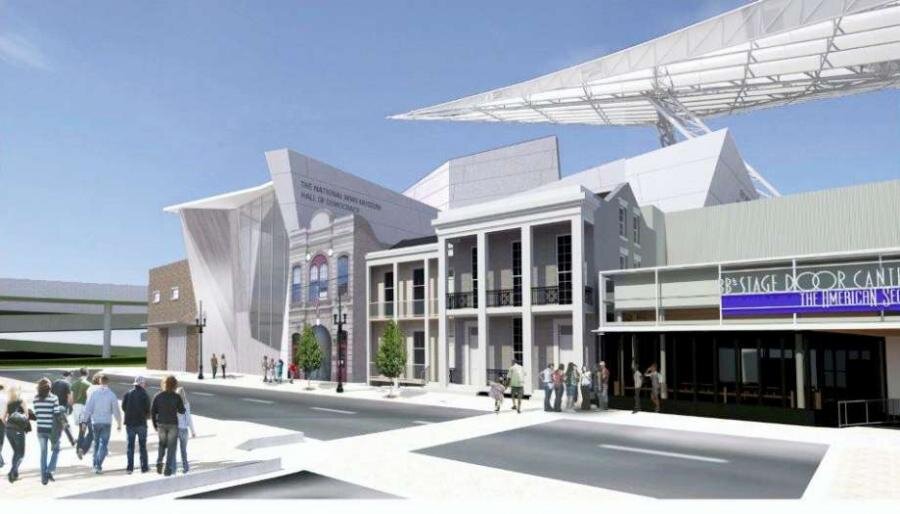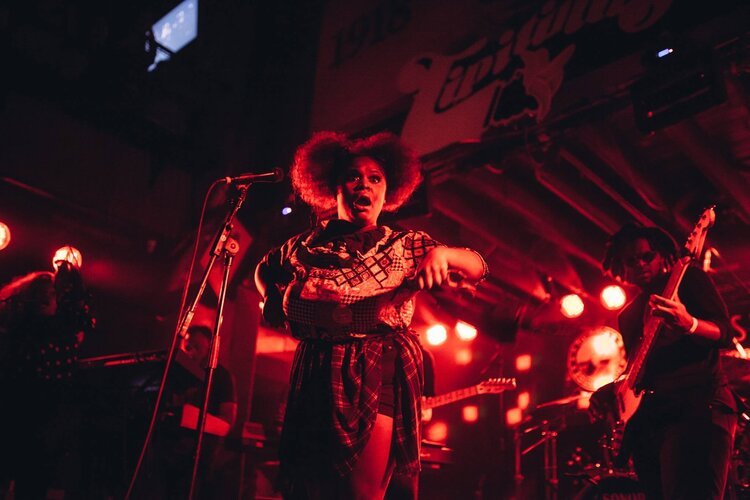We Need to Dream Bigger Dreams for New Orleans' Musicians

Are studios and museums really the best solutions we can come up with for musicians that feel the financial pinch in New Orleans?
It’s great that Gambit Weekly called this week for better, fairer treatment of musicians in New Orleans considering the outsized role they play in not only shaping the city’s day to day reality but its identity for centuries. We need more voices to point out that the people who make the music are no longer able to afford to live in the city in many cases, and that the economic reality of a musician’s life is brutal. New Orleans does need to figure out ways to make it easier for musicians to make music here.
Unfortunately, the commentary in the September 18 issue brings little fresh to the conversation. The writer advocates for a museum focused on New Orleans like the the Rock and Roll Hall of Fame or the Country Music Hall of Fame or the Experience Music Project, and while no one doubts that the city’s music history merits such a monument, it’s hard to see how one would help grass roots musicians make a living. It’s not clear that such museums are even good business propositions.
“Imagine an institution like the National World War II Museum, but for Louisiana and Southern music,” Gambit writes—a disappointing line, not because it wouldn’t be wonderful but because Gambit’s staff has to know that the WWII Museum’s mission makes it very donor-friendly. Who turns their back on a celebration of America’s “greatest generation”? Would the money that flows to it to develop two campuses and a canopy flow to a New Orleans music museum if one existed? Ask the people at the Old Mint about the support they have received for the museum’s music focus.
The editorial also asks us to imagine “a major recording studio in the city that birthed Cosimo Matassa, Fats Domino, Dave Bartholomew, and Allen Toussaint.” I could be a poindexter and note that Bartholomew was born in Edgard, Louisiana, but it’s easy to imagine such a studio because that hasn’t been a problem. Piety Street Recording was just such a studio until it closed its doors in 2013, and attracted such clients as Dave Matthews Band, Ryan Adams, Black Eyed Peas, Ray Davies, Marianne Faithfull, and Florence and the Machine during its run. The studio closed because computer-based recording technology brutalized the studio business nationally, but New Orleans still has great studios including The Parlor, where Solange, T-Bone Burnett, Lettuce, Pretty Lights, GRiZ, and more have recorded. New Orleans’ music community has issues, but a place to record isn’t one of them. It’s also not clear how studios change the fortunes of musicians. I know of some who benefited by being local musicians that got a call when a national act needed a horn section, and for almost a year, it seemed like artists who came to New Orleans ended up with George Porter Jr. playing bass behind them. For the rank and file of musicians scuffling on Frenchmen Street, Piety meant little more than a place for them to record their albums when they were ready.
The editorial critiques the Landrieu Administration’s strategy of framing music as part of the “cultural economy,” and the criticisms are spot-on. Landrieu contextualized the arts as a business, and used that construct to get pro-business politicians to get on board with supporting the arts. That approach treated all art as value- and quality-neutral, which is problematic assumption, and it rewarded arts that created jobs. That worked well for manpower-intensive projects like movies and television shows, but not nearly as well for musicians recording albums.
Gambit is right. We need to treat our musicians better. There’s no disagreement over that. The question remains as to what form that should take, though, and that’s where this conversation needs to go. The “night mayor” concept that the editorial advances sends the symbolic message that New Orleans values its musicians enough to give them an advocate, but how would such a new position fit into city government? Would it be redundant with the Office of Cultural Economy? And although such a position would theoretically speak for the city’s nightlife, doesn’t relegating musicians’ concerns to such an office send the message that they are second tier concerns?
Still, it’s a new thought in a conversation that needs new thoughts, so it shouldn’t be dismissed out of hand. In a political climate where universal welfare and guaranteed wages have entered the national conversation, we collectively need to start thinking new thoughts about how to treat New Orleans’ musicians at the symbolic and practical levels. If some ideas require some heavy political lifting, then we need to think about how to do it. Or, we need to think about other ways to achieve hard goals.
Bottom line: Gambit got in the conversation and added a new thought to it, while recycling some old thoughts in the process. Let’s call it the end of one phase of the conversation and the start of another. It’s time to think bigger—not about incremental advances like musicians’ loading zones but about what might make it possible for musicians to live and work effectively in New Orleans. The city’s tourist-based economy depends on musicians, so if we’re not taking care of them, we’re not taking care of New Orleans.
What’s your big idea for how we can make New Orleans an easier place for musicians and culture bearers to live and work?






